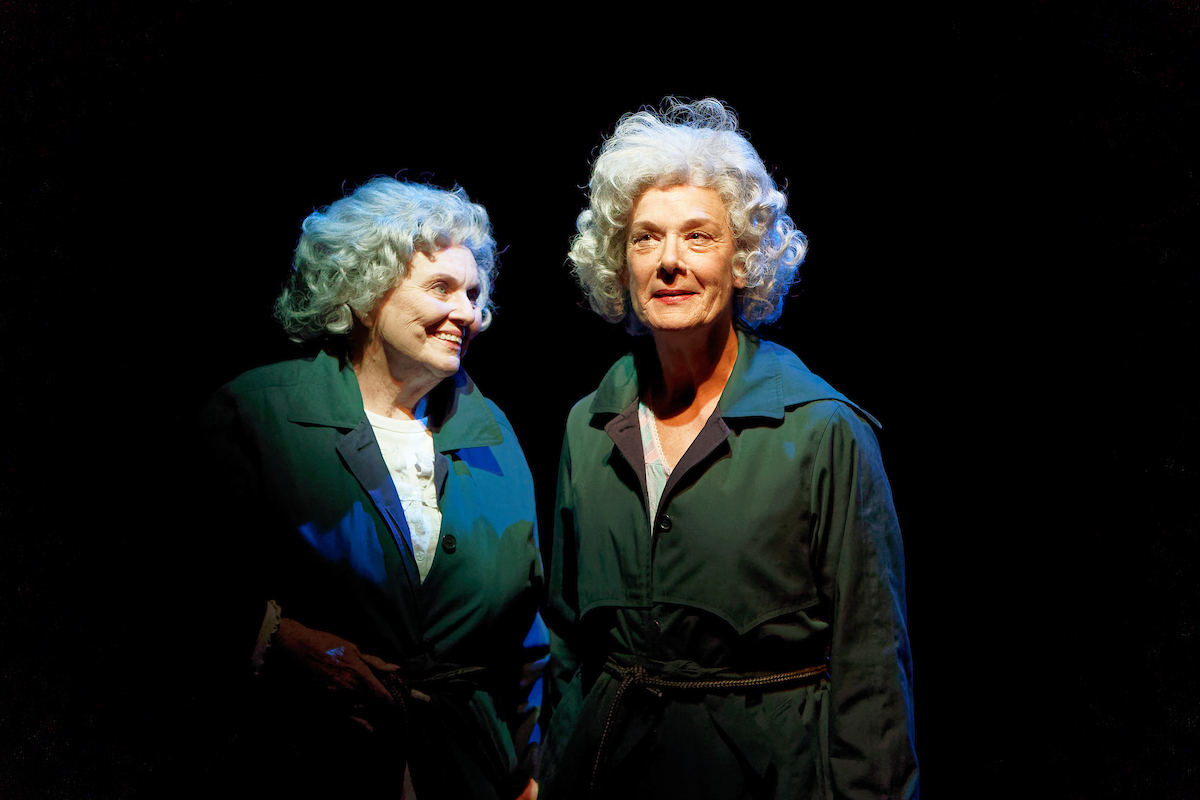Pride Month as we know it spawned from the violent riots at Stonewall Inn, in New York City, in 1969. Black queer folks including Stormé DeLarverie and Marsha P. Johnson were instrumental in this demonstration for LGBTQ rights.
“No pride for some of us without liberation for all of us.” This quote by artist Michah Bazant who included it on a portrait of Johnson resonates boldly today as we continue to work toward dismantling systematic oppression in all its forms.
We asked our Kranzberg Arts Foundation family, “What does Pride mean to you this year?” Here are some of the responses we gathered.

“I came out of the closet in my early 20’s during the mid-’90s. When I came out I vowed to never go back in; not for a relationship, job, or any reason whatsoever. It has been a long road filled with daily battles for equality… every battle has been totally worth it.
“I live in a state that hates me. It fought against my right to live as an out and proud homosexual man, marry my husband, adopt a child, and even still to this day allowed others to discriminate against me in my workplace.
“If there is a right for a straight man in Missouri the state government will actively and openly work to keep that same right away from a gay man.
“Missouri may hate the LGBTQIA+ community, but Lady Liberty loves us and she proved again [this month] that love always conquers hate.”
#LoveWins
-Matthew Kerns, Executive Producing Director for St Lou Fringe
“Pride is canceled.
“I’m thinking about Rem’mie Fells, Riah Milton, Nina Pop, Tony McDade, Kiwi Herring, & way too many other Black trans folx murdered at the hands of state-sponsored violence, white supremacy, transphobia, & other systemic oppression. I’m thinking about all of the Indigenous trans & two-spirit folx who are murdered and missing, whose stories are usually erased and unheard under the same violent systems of power that are taking their lives. And how none of them get to live to celebrate their queerness, their joy, their magic, their fierceness, their aliveness.
“As a queer mixed-race east Asian femme artist, this time for me is another reminder of how acutely I (& we, but to speak for myself) need to continue to examine and use my roles, my art, and my relationships to power, privilege, and oppression to co-shape the reality many of us want to see. One that centers Black and Indigenous liberation & life & pleasure & creativity & wellness & leadership — especially that of Black & Indigenous trans womxn & two-spirit folx & non-binary folx & queer folx.
“To me, that’s a kind of pride to celebrate.”
-Erika Harano, company artist + educator for Consuming Kinetics Dance Company
“These are celebrations [Juneteeth and Pride] of our human rights. What we do now and from now on will contribute to the changes we need for our future, for equal rights, and for equal treatment as a human race.”
-Dawn Karlovsky, Founder and Artistic Director, Karlovsky & Company Dance
“For me, PRIDE is about celebrating diversity, inclusion, and the LGBTQIA+ community. It is a time to actively promote one’s self-affirmation and for everyone to reflect on the true meaning of acceptance and love for all of humanity.”
-Ashley Tate, Artistic and Executive Director, Ashleyliane Dance Company
“I salute Pride Month. I honor my LGBTQ colleagues in the Arts. And I’m so happy about this [month’s] landmark Supreme Court decision, making this month, perhaps, the most significant Pride Month ever.
“And I salute all my fellow humans, of whatever stripe, who are carrying on through the challenges of our time to lead us to a brighter future for all.”
-Joe Hanrahan, Co-founder and Artistic Director, The Midnight Company
“It’s fitting then that Juneteenth and Pride are celebrated in the same month. Both groups have endured struggle, hardship, and inequality, fighting tooth and nail for every inch of acceptance within the majority culture. Black and LGBTQIA communities have much to celebrate, but their celebration is bittersweet, not just this year but every year. The fact that these two groups share celebratory space isn’t all that weird when we consider how inequality and injustice found in American society are often interconnected by systems, institutions, and individuals.

“One of my favorite Black authors also happened to be a Gay man; James Baldwin. He is the originator of the quote in the illustration. He reminds us that our character, integrity, leadership, love, is determined by how we treat those who have been pushed to the bottom, denied their full expression of humanity, left to be forgotten.
“Celebration, with its twin sides of lamentation and joy, helps us to combat this desire to forget people not like us. It helps us see the other as just as human as us, full of the same emotions of joy and sorrow, fear and courage, hope, and despair. I hope [this] month gives you an opportunity to learn about the many beautiful aspects of Black and LGBTQIA culture, why they are worth celebrating, and that you not shy away from the sorrowful bits, but instead learn to sit with others in both their grief and their joy.
“We can never be the America we say we want to be if we do not learn how to love our neighbor as fully human, worth of dignity and justice, and worthy of our care and concern, regardless of color, nationality, orientation, gender, age, ability, religion, political affiliation, class, and any other distinction we could put out there. “
-Megan Kenyon, 2020 visual art exhibitor
*This is an excerpt from a longer essay on the topic of Juneteenth and Pride written by Kenyon. Read the full essay here.*
“It’s so important to celebrate and support each other – all of us, no matter how we look or identify, are loved and important. One Love.”
-Janet Evra, 2019-20 music artist in residence





